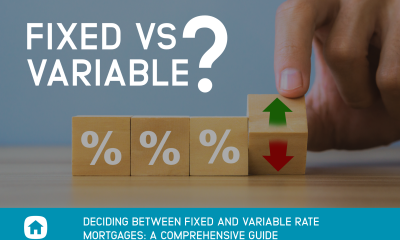(Special) – With two recent reports showing that Canadians’ debt load is continuing to increase, many people may need to seek out professional advice to help them deal with and solve their debt situation.
A report by Equifax Canada found that Canadian consumer debt including mortgages climbed to $1.864 trillion in the second quarter of 2018, up two per cent from the first quarter of the year and up 5.4 per cent from a year ago. The agency predicts delinquency rates will increase in the future as a result of higher interest rates, slower economic growth and other factors.
A recent report by BDO Canada has found that 74 per cent of Canadians live under the burden of debt, so much so that 30 per cent don’t have enough money for basic needs and a quarter are so overwhelmed with debt that they don’t know what to do about it.
The debt problem appears to be affecting virtually every sector of Canadian society, but particularly millennials.
“With the high cost of housing these days millennials in particular are behind the eight ball, finding it a challenge to buy a home, putting off having children due to affordability and not being able to save for retirement,” Doug Jones, president of BDO Canada’s financial recovery services practice, said in an interview. “Yet, the report shows that 43 per cent of Canadians in this group admit to spending more than they should on wants instead of needs, higher than all other demographic groups. This goes back to the basic financial principal of budgeting and spending first on needs rather than wants.”
There are a number of ways Canadians can proactively take steps to manage and reduce their level of debt.
One is to develop a budget and regularly set aside some money toward paying off your debt.
Financial professionals like to distinguish between good and bad debt. Good debt includes anything that is too expensive to pay cash for but is something you need or might be considered a good investment, such as a house, which usually rises in value over time.
Bad debt is any form of debt with a high interest rate for things you don’t really need or can’t afford. The worst form of bad debt is credit card debt because it carries the highest interest rate.
One strategy is to pay off debt with the highest interest first and then pay off the lower-interest debt. Another is to consolidate all your debt together at the lowest rate possible and start paying it off — even if it’s a little each time.
Canadians who are struggling with their debt situation may turn to debt consultants for help. These individuals usually are not licensed, will charge fees for their advice and often end up referring you to a licensed insolvency trustee (LIT) who will actually do the work and can prepare and execute a consumer debt proposal.
If you’re an individual and your total debts do not exceed $250,000, not including debts such as a mortgage secured by your principal residence, a consumer proposal may be the right option.
A consumer proposal is a formal, legally-binding process administered by an LIT who works with you to develop a proposal — an offer to pay creditors a percentage of what is owed to them or extend the time you have to pay off the debts, or both.
A consumer proposal is filed with the Office of the Superintendent of Bankruptcy (OSB) and cannot exceed five years in length. Payments are made through the LIT who uses that money to pay each of your creditors.
The BDO survey found that Canadians’ familiarity with the work of LITs is low, with just 21 per cent saying they have some idea of what their role involves. Even after being given a definition of the LIT’s role, only 22 per cent say they would likely consult one for advice, rising to 51 per cent among those who said they were overwhelmed by debt.
BDO Canada has 62 LITs across the country to help Canadians with their debt situation. “A significant group of Canadians rely on various forms of debt to cover their spending and many find themselves feeling lost and overwhelmed by this debt,” Jones says. “The good news is that a Licensed Insolvency Trustee can help them navigate these waters.”
Talbot Boggs is a Toronto-based business communications professional who has worked with national news organizations, magazines and corporations in the finance, retail, manufacturing and other industrial sectors.
Copyright 2016 Talbot Boggs
Talbot Boggs , The Canadian Press

 Buying a Home5 years ago
Buying a Home5 years ago
 Credit6 years ago
Credit6 years ago
 Business4 years ago
Business4 years ago
 5 Mortgage Secrets7 years ago
5 Mortgage Secrets7 years ago
 Buying a Home6 years ago
Buying a Home6 years ago
 5 Mortgage Secrets6 years ago
5 Mortgage Secrets6 years ago
 News12 months ago
News12 months ago
 Business4 years ago
Business4 years ago





